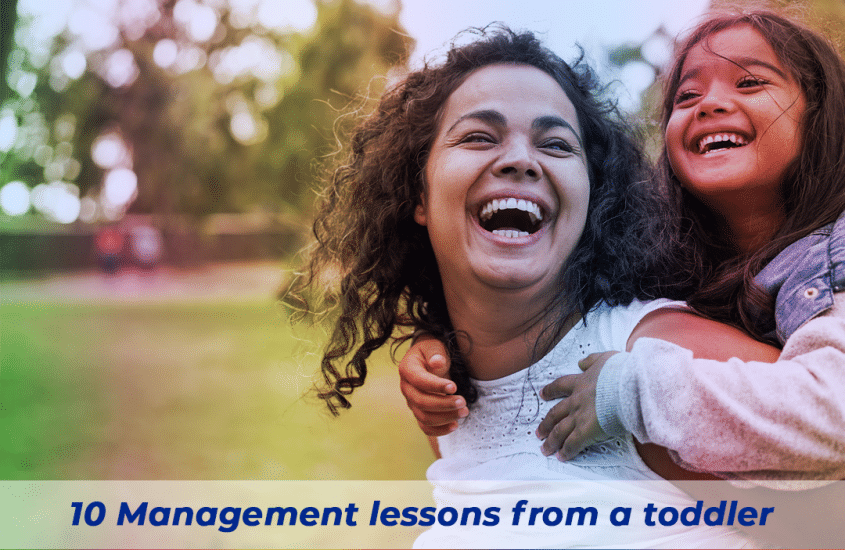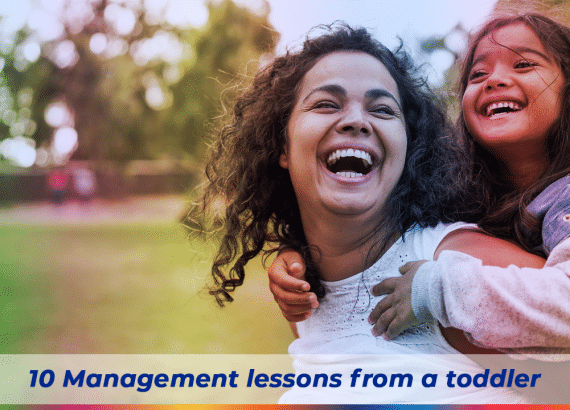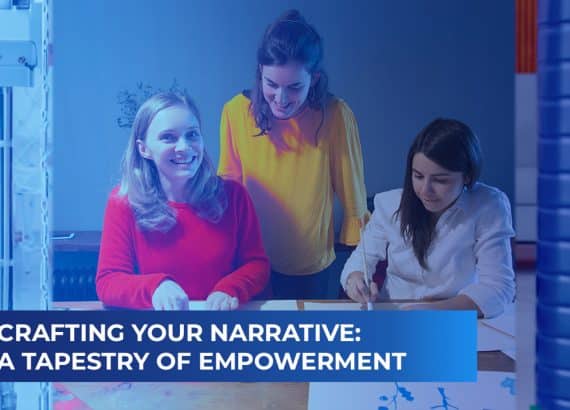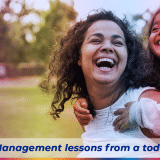10 Management lessons from a toddler

Author: Apoorva Dhemre
The last three years of raising my little one has been nothing short of a miracle, a rollercoaster, and yet, the most important learning curve ever.
We all know young kids are curious, adventurous, and fearless, and in their pursuit of exploration lie many mindful takeaways that we can all apply in our daily lives and work lives. Not just as a parent but also as an individual and working professional, here are some lessons I learnt from my little one.
Prioritize: One of the most important things I’ve learnt as a parent is protecting my mental, physical, and emotional bandwidth which may sometimes come at the cost of not being able to do all the 100 things on my list and letting myself be okay with it. Managing life with a child often presents many situations where one must choose between things/situations teaching us the valuable skill of prioritization or simply put ‘doing what matters’. So even if that means shuffling, having to choose, carrying forward some tasks or even turning down something politely you don’t have the bandwidth for, do it.
Being dynamic: While you can do everything to plan a child, after a child comes into the world not everything will always go as planned. Some amount of planning is good and crucial to create an environment of consistency, discipline, and schedule but then be ready to change the course of action now and then. Looking at my child’s growing needs, developmental changes, and fluctuating likes and dislikes has only taught me to be more flexible. If we want to mold them, we need to be malleable ourselves.
Respect: The secret sauce to any successful and happy relationship is respect. When kids, however small or big, know that their parents respect their choices, preferences, and paths, they become more confident, secure, and happy human beings. They are trying to make their place in this world with their own uniqueness and as parents, we need to respect them and their choices. Respect among family members, peers, and clients, and their ideas and opinions add a pleasant dimension to our experiences in the workplace and beyond going a long way in building valuable connections.
Curiosity: A child possesses an innate curiosity to learn through careful observation and exploration. Infants start exploring their bodies, and toddlers and children run around, touching, and feeling everything around them. They are learning, absorbing, and interacting with their environment through this active sensory exploration.
The power of connections, conversations, collaborations, travel, adventure, nature trails, just soaking in the sun, and air, reading a real book and the imprint they all have in shaping us cannot be undermined.
Being vocal: A baby’s shrill cry for milk, a toddler’s tantrum, or expressing joy by jumping around is testimony to how they communicate and express their emotions. They do this without the fear of judgment, assumptions, or consciousness. But as we grow up, we mask our opinions and ideas. Those unsaid thoughts that were right at the tip of the tongue but never uttered often bother us in retrospect. We can learn from them and keep our say on the table, that idea you are brewing up in that discussion with conviction. Express our joys and sadness on things that matter and yes, free ourselves from our own and others’ judgments.
Trusting your instinct: Becoming a parent teaches us an invaluable lesson of trusting our instinct and gut feeling. If your instinct tells you on looking at your child that something is not quite right, in most cases, it isn’t. Instinct is like an inner compass or your lighthouse trying to navigate you in the right direction. Trusting your instincts can be helpful when applied to parenting and at work with planning and decision-making.
Being out in the field: Just like children who reveal themselves to the fullest in a play area and learn the most outdoors when physically interacting with others and the environment. The impact of visiting the playground, being among playmates, developing sportsmanship, camaraderie, and the spirit of healthy competition is profound. In the same context, our playground could be pushing ourselves by getting out of the office to meet that client, to the market for research, hearing our customers, or as simple as engaging in exercise, hobby class, or skill. Meetings and hearing from someone directly can inspire us and give us some great insights.
Being in the moment: Kids grow up so quickly that if we as parents are not present in their joyful moments, we will probably regret it later. When a child is playing, he/she will look so involved in their play with all their senses. They are completely immersed in that moment. As parents, we need to do the same when around them, they deserve our full attention and our willingness to engage with them. The same applies to us being mentally and physically present in all our endeavors and learning from kids what it means to go with the flow, enjoy the process, and be in the present moment.
Collaboration: They say it takes a village to raise a child. This can’t be more true. Looking after a child needs assistance from everyone possible in the family like grandparents, siblings, and house help. Parents who get this assistance easily are fortunate and can also focus better on their work lives. There are many values that grandparents can impart to them and playfulness that only their siblings bring, making everyone in the equation essential. Just like in a team, everyone plays a specific role and contributes to their area of expertise for them to collectively build something significant.
Fostering connection: Forming a connection with their children requires parents to spend time with them, playing and communicating actively with them to understand their emotions, thoughts, and needs. Every good habit that we wish to inculcate in a child takes consistent effort. Everything worthwhile takes time, it’s like watering a plant every day so it becomes a tree, forming a deep loving, and trustful bond with children takes effort, time, and patience. That is true when it comes to building a bond with friends, clients, and co-workers as well. It’s when we give time to one another, understand the struggles, and make the effort to establish a rapport that lasting relationships are formed, after all the company we keep matters.
*The author is a communications specialist.*







